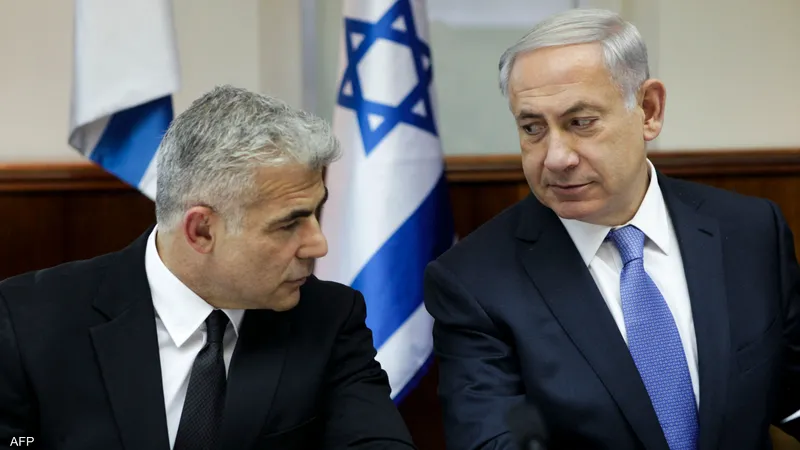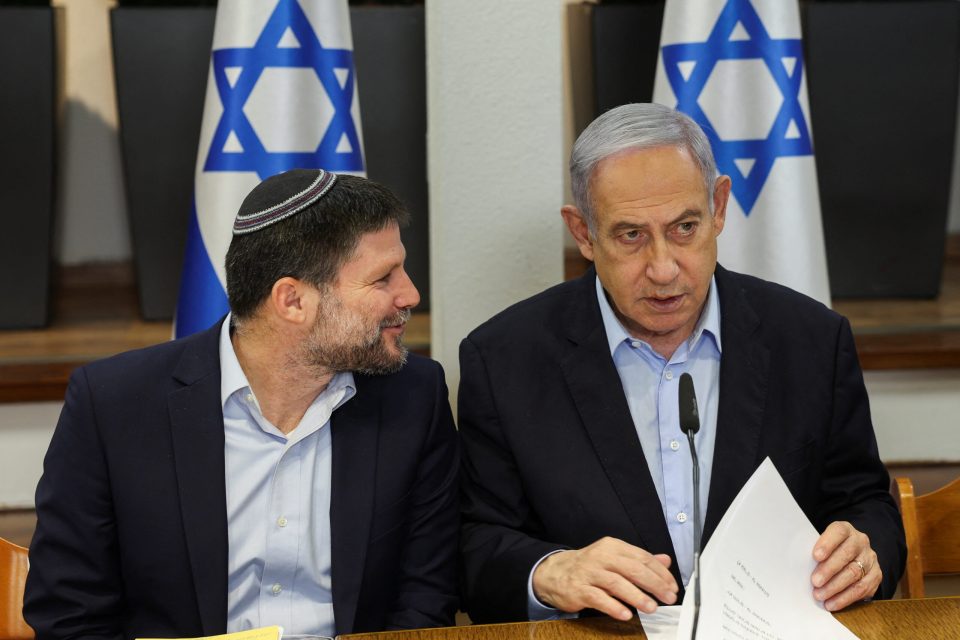FALCON POWERS – Amid various proposals for a ceasefire in Gaza and Lebanon, U.S. Secretary of State Antony Blinken arrives in the region today, marking his tenth visit since the war on Gaza began, with zero successes regarding its stated objectives.
Regarding Lebanon, Israel awaits the outcomes of the current round of discussions by U.S. envoy Amos Hochstein in Beirut, to whom it presented a proposal for a ceasefire with Hezbollah based on respecting UN Resolution 1701, while retaining the right to conduct military interventions if UN forces fail to prevent violations of the agreement.
According to Lebanese sources, Hochstein’s somewhat fantastical proposal involves enhancing international forces in areas of Lebanon beyond the south, and establishing peace between it and Israel. Israeli sources stated today that Israel is considering supporting a ceasefire in the north that includes appointing a “moderate president” in Lebanon, attempting to “try what has been tried” after failing to impose a president on the Lebanese according to its specifications, Bashir Gemayel, during the First Lebanon War in 1982.

Simultaneously, Israeli leaks indicate that Shin Bet chief Ronen Bar, upon returning from Cairo and his first official meeting with the new head of Egyptian intelligence, Hassan Mahmoud Rashad, proposed a ceasefire in Gaza to the security cabinet, which Netanyahu’s office described as “creative ideas.”
According to Israel’s public radio this morning, Bar outlined the proposal, which was said to be a result of his meeting with Rashad, involving a ceasefire for about two weeks in exchange for the release of some hostages, hoping this would serve as a prelude to a comprehensive deal.
Israeli sources revealed that the proposal was presented to the security cabinet without official detailed discussions, with most ministerial members supporting it. However, Smotrich and Ben Gvir, who advocate for continuing the war, opposed it, insisting on achieving benefits until “total victory.” Reports indicated that Netanyahu asked Minister of Strategic Affairs Dermer to develop a comprehensive proposal specifically for Gaza, which today announced the army’s adoption of a project to provide humanitarian aid to its residents through a Jewish businessman specializing in global humanitarian assistance, aiming to prevent Hamas from gaining control.
Continued Chatter
While Israel intends to maintain a military presence in certain areas within the Gaza Strip, Hamas reaffirms its traditional stance favoring a ceasefire agreement that includes a complete withdrawal of occupation forces and the release of Palestinian prisoners.
So far, it does not appear that Netanyahu is inclined to change his stance for ideological, political, and personal calculations regarding Gaza, Lebanon, and Iran, as he seeks to prolong the war on multiple fronts, exchanging blows with Iran, while continuing to disregard the U.S. administration, as reflected in Trump’s statement that Netanyahu told him he does not listen to Biden. Will Blinken’s visit differ from his many previous visits in terms of effectiveness or remaining within the realm of chatter?
For his part, Blinken has not disclosed whether he carries a new proposal, sticking instead to his “broken record” of reiterating before his arrival that the U.S. seeks a ceasefire, ensures Israel’s security, and alleviates the suffering of the Palestinian people. He is expected to meet with Israeli Prime Minister Netanyahu and President Herzog.

We Must Stop the Bleeding
Since the martyrdom of Hamas leader Yahya Sinwar, there has been an increase in Israeli circles calling to “seize the opportunity,” announce victory, finalize a deal to return the hostages in exchange for Palestinian prisoners, and end the war on Gaza.
One of the prominent voices calling for an immediate halt to the war is former National Security Advisor, reserve General Giora Eiland, who cites four factors for stopping the war in Gaza now.
In an article published by Yedioth Ahronoth, Eiland states that there might be a possibility to improve the conditions of the deal, especially regarding the number of Palestinian prisoners to be released, but there is no need for stubbornness over trivial matters.
Eiland justifies his call to stop the war in Gaza now by stating that, in addition to the urgent need to rescue the hostages in a final opportunity, there are four additional reasons:
- Our Injured: We used to mourn every fallen soldier, and it seems we have lost this feeling; our hearts have become harder in the face of soldiers’ deaths and injuries, but we are talking about young people losing their limbs, and their world is being destroyed.
- Intense Pressure on Soldiers: There is a need to alleviate the extreme pressure on regular and reserve soldiers.
- Economic Burdens: Every day of fighting costs half a billion shekels, which affects our future civil and military needs.
- The World Wants the War to End: There is an understanding of why Israel is fighting in Lebanon and Iran, but no one understands what we want right now in Gaza!
Eiland asserts that if we continue the war in Gaza for another six months or a year, the reality will not change, and “two things will happen: all the hostages will die, and additional Israeli soldiers will be killed.”
He concludes by linking the reconstruction of Gaza to the disarmament of its resistance.
Notably, such calls, which are supported by an increasing number of observers and former military personnel since Sinwar’s martyrdom, come from a reserve general (Eiland) who previously called for targeting the Lebanese state directly and not just fighting Hezbollah, as well as advocating for killing civilians in Gaza, claiming that women and children are the daughters, wives, and children of Hamas fighters. He also led the Generals’ Plan for displacing the north and strangling Gaza.
Saving Israel
Among the most prominent and long-standing advocates for stopping the war is former head of military academies, reserve General Yitzhak Brick, who again warns against the “adventure of continuing the war.”
In an article published by Haaretz, Brick, known in Israel as the “Prophet of Rage” for predicting the “Flood of Al-Aqsa,” states that replacing the political and military leadership is the only way to save the state from collapse. He notes the mistake made by some in Israeli society who believe it is necessary to continue the war until destroying Hezbollah and Hamas to eliminate any existential threat to Israel.
He continues, “The Israeli army cannot do that now, and we should seek to stop the fighting and reach a settlement to prevent Israel’s collapse.”


